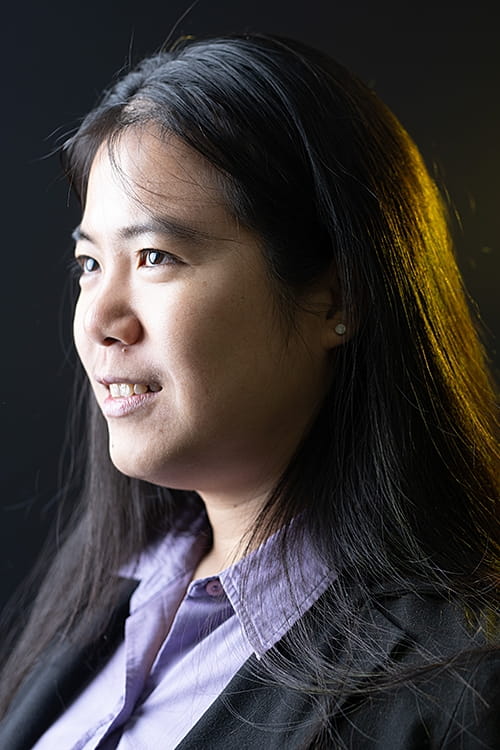
Ying Hsu, Postdoctoral scholar, ophthalmology and visual sciences
Preserves vision with gene therapy
“Ying Hsu has been the most dedicated research trainee possible, including during the COVID19 lockdown…She is a perfect example of a bright young person who came to the U.S. with big dreams and is making them come true, and in the process is making the world a better place.” -Arlene Drack, professor
Hometown: Kaohsiung, Taiwan
Faculty mentor/advisor: Arlene Drack, MD, professor, ophthalmology and visual sciences
What is your degree program and expected graduate date? Postdoctoral scholar
Please describe your research: Photoreceptor cells in our eyes allow us to see our surroundings by detecting the color and intensity of light and relaying this information to form vision. In a rare genetic disease called Bardet-Biedl syndrome, changes in the patients’ DNA sequence—mutations—cause photoreceptor cells in the eye to perish, leading to vision loss. We are developing a treatment called gene therapy to provide these cells with normal sequences of the DNA without the mutations to save these cells. The treatment slowed down the death of photoreceptor cells in the eye and delayed vision loss.
In simple terms, why does this research matter? Vision loss has a huge effect on daily life. Currently there is no cure for blindness in Bardet-Biedl syndrome, and patients become blind by the second or third decade of life. Being able to prevent vision loss can make an enormous impact on patients’ lives.
How soon after starting at the University of Iowa were you able to participate in research? I obtained my PhD here at the University of Iowa. I could immediately jump into research upon starting the program at the University of Iowa.
How has being involved in research made you more successful at the University of Iowa? Being involved in research is central to my experience at the University of Iowa. To overcome obstacles, all the skills learned during various stages of my training need to come together. Research is a challenge that constantly evolves, and creating a working treatment takes a dedicated team. I am thankful to have met amazing mentors and colleagues along the way.
What are your career goals and/or plans after graduation? I wish to dedicate my life to the research path and apply my mind to create life-changing biomedical solutions. I wish to become a faculty and train the next generation of scientists in addition to doing research.
Banner location: not on display—
